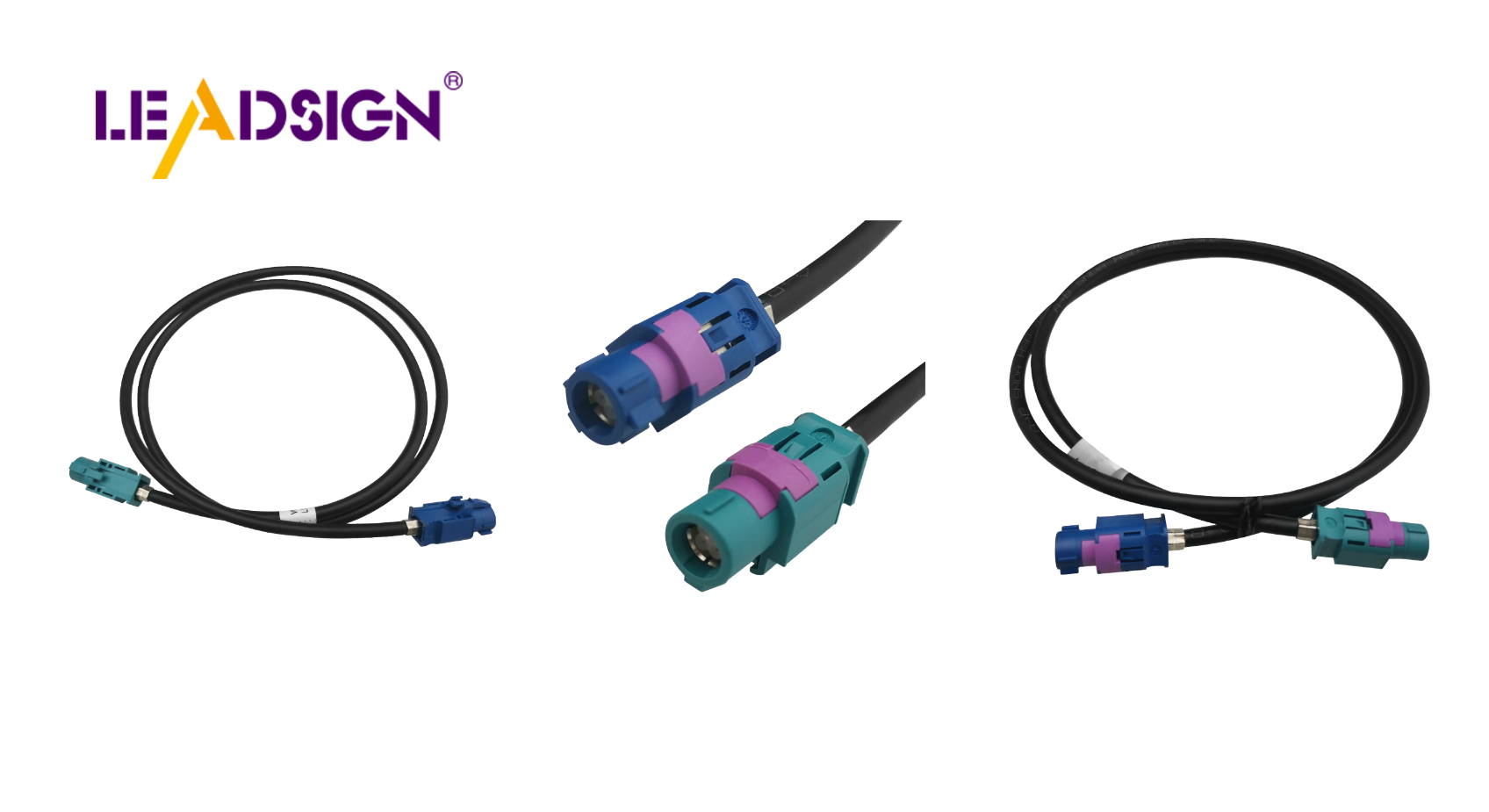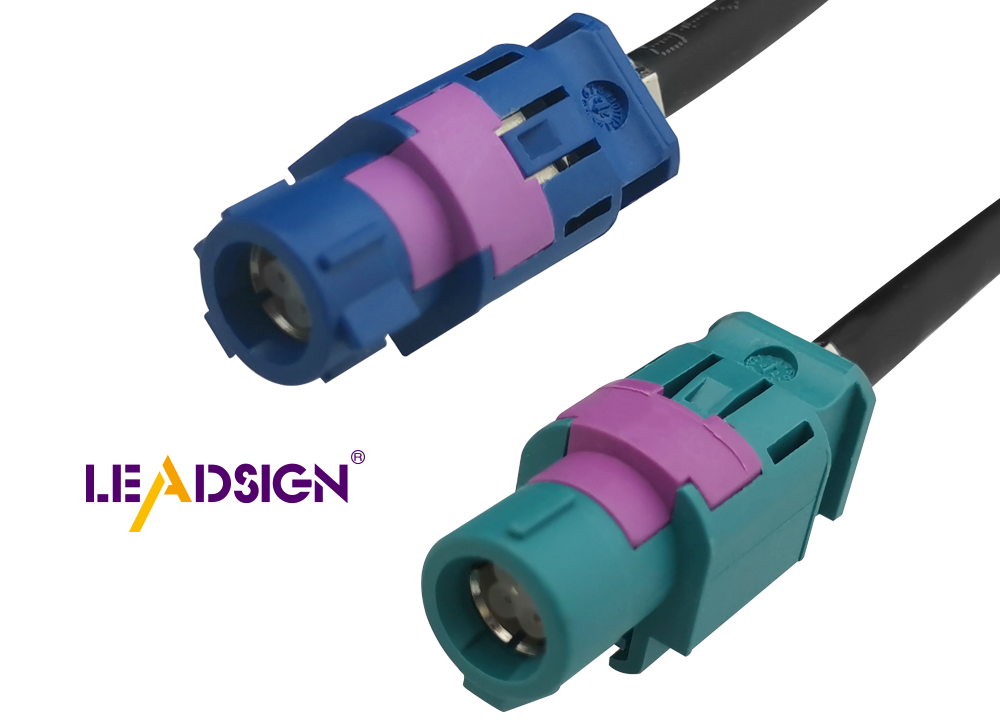Top Automotive Wiring Connector Types for Every Need

Selecting the appropriate automotive electrical connectors types is crucial for ensuring optimal performance in vehicles. It is essential to have reliable connections to guarantee safety and efficiency. There are various types of car electrical connectors available, each designed for specific purposes. For instance, copper connectors, known for their affordability and effectiveness in conducting current, are widely used in the automotive and electric vehicle sectors. It is important to note that connector failures are more prevalent than standard wiring problems. Therefore, selecting the right type of connector is essential to achieve peak performance and long-term reliability.
Types of Car Electrical Connectors
Picking the right car electrical connectors is very important. It helps your car's electric parts work well. Let's look at some common connector types and how they are used.
Quick Disconnects
Quick disconnects let you join and separate wires easily. You don't need tools for this. They are popular in cars because they are simple to use.
Good and Bad Points
Good:
Easy to join and separate
No tools needed
Good for short-term setups
Bad:
Not good for forever connections
Can get loose if not tight enough
Where They're Used
Quick disconnects are used when wires need frequent joining or separating. They work well for short-term or test setups in cars.
Butt Connectors
Butt connectors join two wires securely. They are often used to connect wires together.
Good and Bad Points
Good:
Strong, lasting connection
Simple to put on with crimping tools
Comes in different sizes for various wire thicknesses
Bad:
Needs crimping tools to attach
Hard to take apart once joined
Where They're Used
Butt connectors are common in fixing or setting up car wiring. They are great for strong, lasting connections, perfect for long-time use.
Bullet Connectors
Bullet connectors, also called quick disconnect terminals, make easy and safe connections. They have a bullet-shaped male end and a female part.
Good and Bad Points
Good:
Fast and easy to connect
Stops short circuits when apart
Strong under pressure or stress
Bad:
May need more space than other types
Harder to separate if not lined up right
Where They're Used
Bullet connectors can replace quick disconnects. They fit uses where wires often connect or separate, like car lights or sound systems.
Knowing these car electrical connector types helps you choose wisely when working on your car's electric system. Each type has special benefits suited for certain uses, ensuring you pick the best connector every time.
Ring Terminals
Ring terminals are important in car wiring. They help attach wires to screws or studs safely. This makes them great for strong, lasting connections.
Good and Bad Points
Good:
Strong Hold: Ring terminals keep wires tight. This is key in cars where shaking happens.
Useful: They fit different wire sizes, so they work with many types.
Simple to Use: Just slide the ring on a screw and tighten it.
Bad:
Hard to Remove: Once on, taking them off is tough. Not good if you need to disconnect often.
Needs Tools: You need tools to crimp them onto wires, which can be hard without the right gear.
Where They're Used
Ring terminals are used in car wiring for several reasons:
Battery Links: They join battery cables to battery ends. This keeps power flowing well in the car.
Grounding Wires: Perfect for grounding wires, giving a steady link to the car's body.
Starter Motors: In starter motors, they deliver high power needed to start engines smoothly.
Fuse Blocks: Used in fuse blocks for safe wire links, stopping overloads.
Knowing about ring terminals helps you choose well when fixing your car's wiring. Their strong hold makes them a top pick for many uses, keeping your car's electric parts working right and safely.
Buying Guide for Automotive Wiring Connectors

What are Wire Connectors?
Definition and Purpose
Wire connectors join wires in cars. They make sure connections are safe and strong. Unlike soldering, which is hard and slow, wire connectors are easy to use. This makes them great for fast car fixes.
Benefits of Using Wire Connectors
Safety and Reliability
Wire connectors keep your car's electric system safe. They stop electrical problems that could cause trouble. Insulation on connectors, like ring terminals, keeps wires from touching wrong parts.
Ease of Installation
Wire connectors are simple to install. You don't need special skills or tools to connect wires quickly. This makes them good for both experts and beginners. A crimp tool with ring terminals helps make strong links easily.
Types of Wire Connectors
Insulated vs. Non-Insulated
There are two main types: insulated and non-insulated connectors. Insulated ones have a cover that stops accidental touches, making them safer. Non-insulated ones work where safety isn't a worry.
Crimp vs. Solder
You can crimp or solder wires together. Crimping uses pressure to hold the wire tight without heat, perfect for most car jobs. Soldering melts metal to join wires but needs more time and tools.
Knowing these things about wire connectors helps you choose wisely for your car needs. Think about safety, how easy they are to use, and the type you need for a reliable electric system in your vehicle.
Things to Think About When Buying
When picking automotive electrical connectors, think about a few things. These help you choose the best ones for your needs.
Material and Strength
The connector's material is important for how long it lasts. Look for connectors made of good stuff like copper or brass. They let electricity flow well and don't rust easily. This means they can handle tough car conditions and stay strong over time.
Copper Connectors: Copper is cheap and works well with electricity. It's used a lot in cars because it's a good mix of price and performance.
Brass Connectors: Brass lets electricity pass through well and doesn't rust. It's good when you need something that lasts long.
"Our ring terminals work great with the Kraken X60 motor, using 10 AWG and 22 AWG wires for strong connections."
Picking the right material helps your automotive electrical connectors last longer and work better in different situations.
Matching Wire Size
Matching wire size is also key when buying automotive electrical connectors. Make sure the connectors fit the wire size you're using. This makes sure everything connects safely and works well.
Wire Size Fit: Connectors come in sizes to match different wires. Using the right one stops problems like loose wires or too much heat, which can cause failures.
Crimp Tools: You might need a crimp tool that fits both the connector and wire size. This tool helps make a tight connection between them.
"Wire connectors are easier than soldering because they're simple to use."
By thinking about these points, you can pick the best automotive electrical connectors for your car. This keeps your car's electric system safe, reliable, and working well.
People Also Asked
How to Pick the Right Connector for Your Car?
Things to Think About
Picking the right connector for your car needs careful thought. First, decide what type of connection you need. Some connectors are good for short-term use, while others are made for long-lasting connections. Next, think about the environment where it will be used. If it's wet or very hot or cold, choose a connector that can handle these conditions.
Electrical Load: Make sure the connector can take the electrical load needed. Too much load can break it and cause danger.
Compatibility: See if the connector fits with your wire size. Wrong sizes lead to bad connections.
Durability: Find connectors made from strong materials like copper or brass. These help electricity flow well and don't rust.
"Choosing the right connector keeps your car's electric system safe and working well."
Can I Use Home Connectors in Cars?
Differences and Dangers
Using home connectors in cars is not a good idea. Car connectors are made for a car's special electric needs. Here are some main differences and dangers:
Material: Car connectors can handle shakes and temperature changes better than home ones.
Design: Car connectors fit tightly to stop them from coming loose by accident.
Safety: Using wrong connectors can cause electric problems, which is risky in cars.
"Car connectors are built for vehicles' special needs, ensuring safety and trust."
How to Install Car Connectors Correctly?
Easy Steps Guide
Installing car connectors correctly is important for a steady electric system. Follow these simple steps:
Pick the Right Connector: Choose one that matches your wire size and needs.
Strip the Wire: Take off some insulation to show enough metal for connecting.
Insert the Wire: Put the bare wire into the connector snugly.
Crimp It Down: Use a crimp tool to press down on it firmly.
Check It Over: Look at it closely to make sure wires aren't loose.
Test It Out: After putting it together, test it to see if it works right.
"Correctly installing connectors is key to keeping your car's electric system safe and efficient.
Picking the right car wiring connector is very important. It keeps your car safe and working well. Different connectors need special tools and have unique features. Think about what you need them for before choosing. Copper connectors are great for strong electricity flow. Aluminum connectors are lighter and cheaper. Make sure there are enough contact points to keep connections tight. This stops power loss or problems. By choosing wisely, your car will work better and stay safe on the road.
See Also
The Significance of Fakra Auto Connectors in Modern Cars
Fundamentals of HSD Connectors in Automotive Sector
The Benefits of HFM Connectors in Auto Sector

